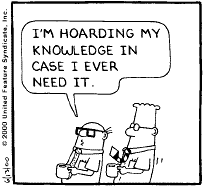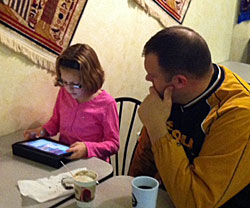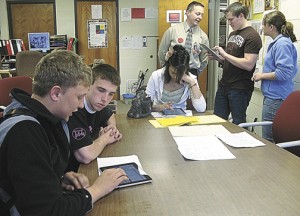I was/am clueless about changes to American manufacturing in the last half century. I know a little bit more after reading an essay by Adam Davidson in The Atlantic. It’s long (by web standards) but worth a read if you wonder where the jobs went and why they’re not coming back.
In the 10 years ending in 2009, factories shed workers so fast that they erased almost all the gains of the previous 70 years; roughly one out of every three manufacturing jobs — about 6 million in total — disappeared. About as many people work in manufacturing now as did at the end of the Depression, even though the American population is more than twice as large today.
One of Davidson’s questions jumped off the page at me: Why are there any manufacturing jobs left in America? The story of Maddie, one of the people featured in the essay, offers a partial answer:
Maddie makes less in two years than the machine would cost, so her job is safe—for now. If the robotic machines become a little cheaper, or if demand for fuel injectors goes up and Standard starts running three shifts, then investing in those robots might make sense.
“What worries people in factories is electronics, robots,” she tells me. “If you don’t know jack about computers and electronics, then you don’t have anything in this life anymore. One day, they’re not going to need people; the machines will take over. People like me, we’re not going to be around forever.”
None of this is news to those who run our companies and countries. They just don’t know a) what to do about it, and b) how to break that news.
Throughout much of the 20th century, simultaneous technological improvements in both agriculture and industry happened to create conditions that were favorable for people with less skill. The development of mass production allowed low-skilled farmers to move to the city, get a job in a factory, and produce remarkably high output. Typically, these workers made more money than they ever had on the farm, and eventually, some of their children were able to get enough education to find less-dreary work. In that period of dramatic change, it was the highly skilled craftsperson who was more likely to suffer a permanent loss of wealth. Economists speak of the middle part of the 20th century as the “Great Compression,” the time when the income of the unskilled came closest to the income of the skilled.
I hope you don’t stop with these excerpts. The article illuminating and worth the read.



